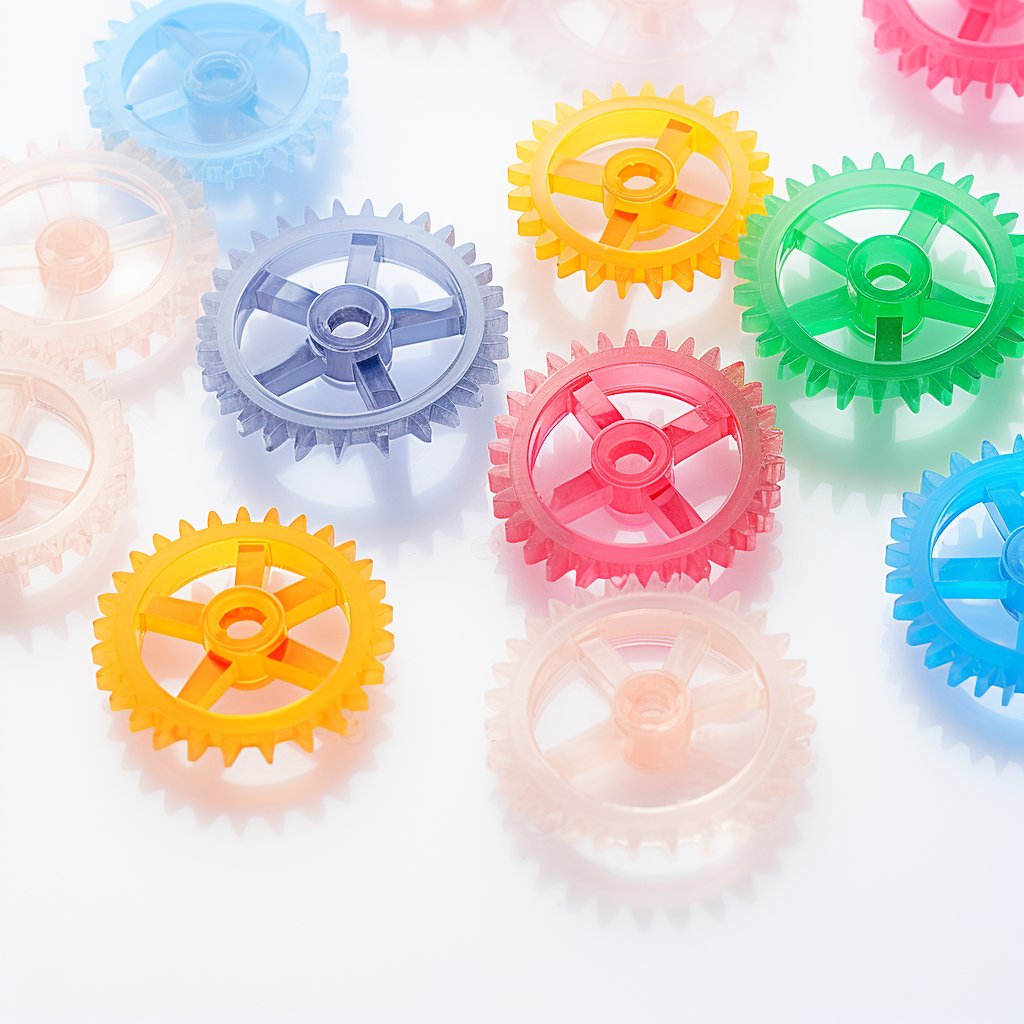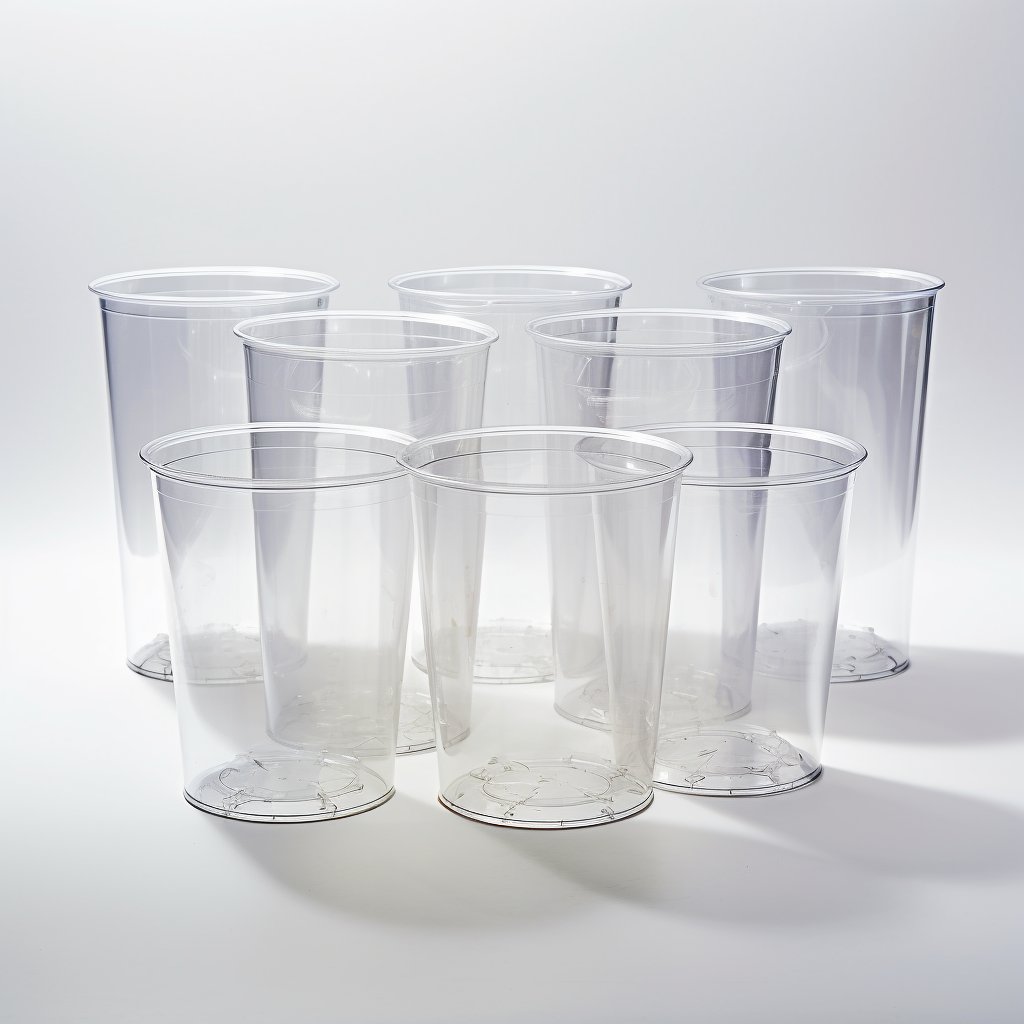ABS (Acrylonitrile Butadiene Styrene) is a thermoplastic polymer that is widely used in the plastics industry due to its excellent mechanical and physical properties. It is a terpolymer made up of three different monomers, acrylonitrile, butadiene, and styrene, each of which contributes specific properties to the final material. ABS has been in use since the 1940s and has found applications in a wide range of industries, including automotive, construction, electronics, and consumer goods.
ABS was first developed in the 1940s by a team of researchers at the German chemical company IG Farben. The team was led by Dr Hermann Staudinger, who was awarded the Nobel Prize in Chemistry in 1953 for his pioneering work on polymer chemistry. The commercial production of ABS began in the 1950s, and since then, it has become one of the most widely used thermoplastic polymers in the world.
Acrylonitrile Butadiene Styrene, commonly known as ABS, is a thermoplastic polymer widely used in the manufacturing of consumer products, industrial applications, and automotive parts. With its excellent impact strength, dimensional stability, and aesthetic appeal, ABS has become a popular choice for a wide range of applications. However, as with most plastics, ABS poses environmental challenges, such as waste and pollution. In this article, we will delve into the properties, history, industrial usage, and application areas of ABS, as well as its advantages and disadvantages compared to alternative plastics. We will also explore the important topic of ABS recycling, including the process, advantages, disadvantages, and environmental and global impact.

What is ABS:
ABS is a highly versatile thermoplastic polymer that combines strength, toughness, and rigidity. The material is widely used in plastics due to its excellent mechanical and physical properties. ABS has found applications in a wide range of industries, including automotive, construction, electronics, and consumer goods
Material Properties:
ABS is a highly versatile polymer that combines strength, toughness, and rigidity. The material is known for its excellent impact resistance, dimensional stability, and resistance to abrasion and chemicals. It also exhibits good thermal stability and can be moulded into various shapes and sizes. The material is available in various colours and finishes and can be easily modified to meet specific performance requirements.
Industrial Usage:
ABS is used in various industrial applications, including automotive parts, piping systems, electrical components, and toys. The material is popular in the automotive industry due to its high impact resistance and ability to withstand extreme temperatures. It is also commonly used for piping systems and insulation in the construction industry. In the electronics industry, ABS makes housings for computers, televisions, and other electronic devices.
Application Areas:
ABS is used in various consumer products, including toys, household appliances, and sporting goods. The material is popular in the toy industry due to its ability to be easily moulded into various shapes and sizes. ABS is also commonly used in household appliances such as vacuum cleaners, blenders, and coffee makers due to its high impact resistance and dimensional stability. In the sporting goods industry, ABS is used to make helmets, golf club heads, and other equipment that requires high impact resistance.
Some examples include:
- LEGO bricks: ABS is used to make the popular LEGO building blocks due to its ability to be easily moulded into precise shapes and sizes.
- Kitchen appliances: ABS is commonly used to make housings for kitchen appliances such as blenders, coffee makers, and food processors.
- Automotive parts: ABS is used to make various automotive parts, including interior and exterior trim, dashboard components, and wheel covers.
- Toys: ABS is popular in the toy industry due to its ability to be easily moulded into various shapes and sizes.

Recycling:
ABS can be recycled, and various recycling methods are available for the material. The most common form is mechanical recycling, which involves shredding and reprocessing the material into new products. ABS can also be chemically recycled, breaking down the polymer into its constituent monomers and then reassembling them into new polymer chains. ABS can also be reused in a closed-loop recycling system, where the material is collected and recycled back into the same product.
ABS can be recycled, but the process can be challenging due to the material’s complex composition. Mechanical recycling is the most common method, but the resulting material may have reduced properties compared to virgin ABS. Chemical recycling methods, such as depolymerisation, have shown promise in recycling ABS.
ABS recycling is a necessary process that helps reduce waste and conserve resources. The recycling process typically involves collecting and sorting waste ABS products, shredding them into small pieces, and then processing them to create new ABS products.
Advantages:
- Resource Conservation: Recycling ABS helps conserve resources by reducing the need for virgin materials.
- Energy Savings: The energy required to recycle ABS is significantly lower than that needed to produce new ABS from virgin materials.
- Environmental Benefits: Recycling ABS helps reduce waste and prevent pollution by diverting waste from landfills and incinerators.
Disadvantages:
- The complexity of Recycling: ABS is a complex material, and its recycling process can be challenging due to its composition.
- Limited Quality of Recycled Material: The quality of recycled ABS may not be as high as that of virgin ABS due to the degradation of the material during the recycling process.
Environmental and Global Impact:
Recycling ABS has several environmental and global impacts. By reducing waste and conserving resources, ABS recycling helps reduce greenhouse gas emissions and conserve natural resources. Additionally, the recycling of ABS can create job opportunities and support local economies.
However, ABS recycling has its challenges. The recycling process can be energy-intensive and lead to greenhouse gas emissions and other pollutants. Additionally, the quality of recycled ABS may be limited, making it less suitable for specific applications.
Despite these challenges, ABS recycling remains an essential process for reducing waste and conserving resources. Efforts to improve the recycling process and increase the use of recycled ABS can help mitigate some of the environmental and global impacts associated with the production and disposal of plastics.
Market Price Developments:
Several factors, including the cost of raw materials, production costs, and market demand influence the price of ABS. The market price of ABS has been relatively stable over the past few years, with minor fluctuations due to changes in supply and demand.
Future Market Prognosis:
The demand for ABS is expected to grow, driven by the increasing use of plastics in various applications. The automotive and construction industries are expected to be significant growth drivers for ABS, with increasing demand for lightweight and durable materials. The recycling of ABS is also expected to gain importance, driven by growing environmental concerns and regulatory pressures.
A versatile thermoplastic:
ABS is a versatile thermoplastic polymer that has become a popular choice for a wide range of applications, from consumer products to automotive parts. However, like most plastics, ABS poses environmental challenges that must be addressed. The recycling of ABS can help reduce waste, conserve resources, and support sustainability efforts. While the recycling process can be complex, ongoing innovations and advancements in recycling technology are making recycling ABS and other plastics easier and more efficient.
As consumers and professionals in the plastics industry, we are responsible for prioritising sustainability and reducing our environmental impact. One way to support these efforts is by choosing products made with recycled ABS and other sustainable materials. We can also support innovation in the recycling industry by advocating for policies promoting recycling and investing in companies prioritising sustainability.
Acrylonitrile Butadiene Styrene (ABS) is a popular thermoplastic polymer that has many benefits, including excellent impact strength, dimensional stability, and aesthetic appeal. ABS is widely used in manufacturing consumer products, industrial applications, and automotive parts. However, like most plastics, ABS has some drawbacks, including environmental challenges such as waste and pollution.







